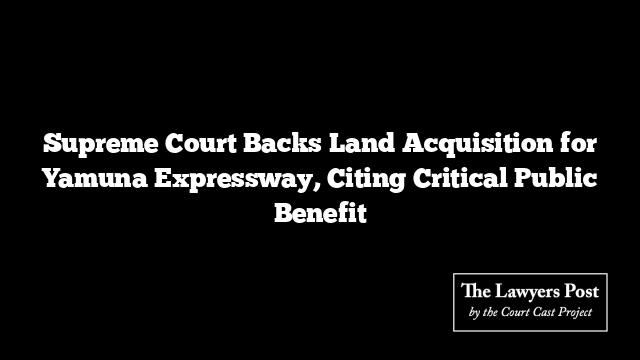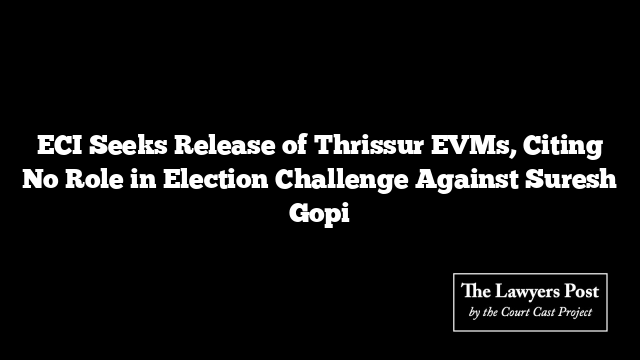In a significant verdict, the Supreme Court upheld the land acquisition for the Yamuna Expressway, affirming its role as a transformative infrastructure project connecting Greater Noida to Agra. The ruling addressed disputes over the urgency of the acquisition process, emphasizing the project’s pivotal role in regional development and public welfare.
The Bench, comprising Justice BR Gavai and Justice Sandeep Mehta, dismissed challenges to the 2009 acquisition of land in Gautam Budh Nagar, which had been carried out under the urgency provisions of the Land Acquisition Act of 1894. These provisions allowed the State to bypass objections typically raised under Section 5A of the Act, a move contested by several landowners.
“The Expressway serves as a lifeline for millions, seamlessly linking Delhi, Agra, and the future Jewar Airport. It is not merely a highway but a catalyst for integrated development, fostering residential, commercial, and industrial growth in adjoining areas. Such a vision justifies the application of urgency provisions in land acquisition,” the Court stated.
The case involved 35 appeals, including 29 from landowners opposing the acquisition and others from the Yamuna Expressway Industrial Development Authority (YEIDA), which sought to overturn prior legal setbacks. The Court reaffirmed a 2023 Allahabad High Court decision that validated the urgency clause’s application, aligning with the broader objective of integrated development.
Rejecting objections that the urgency clause was applied arbitrarily, the Court highlighted the interconnected nature of the Expressway and surrounding development. It dismissed a conflicting 2017 ruling by the High Court, describing it as per incuriam for overlooking prior judgments validating similar land acquisitions.
By supporting the State’s approach, the Supreme Court reinforced the Expressway’s role as a cornerstone of Uttar Pradesh’s development strategy, providing a robust legal foundation for infrastructure projects aimed at fostering economic growth and connectivity. The appeals by landowners were dismissed, while those by YEIDA were allowed, clearing the way for the project’s continuation.





